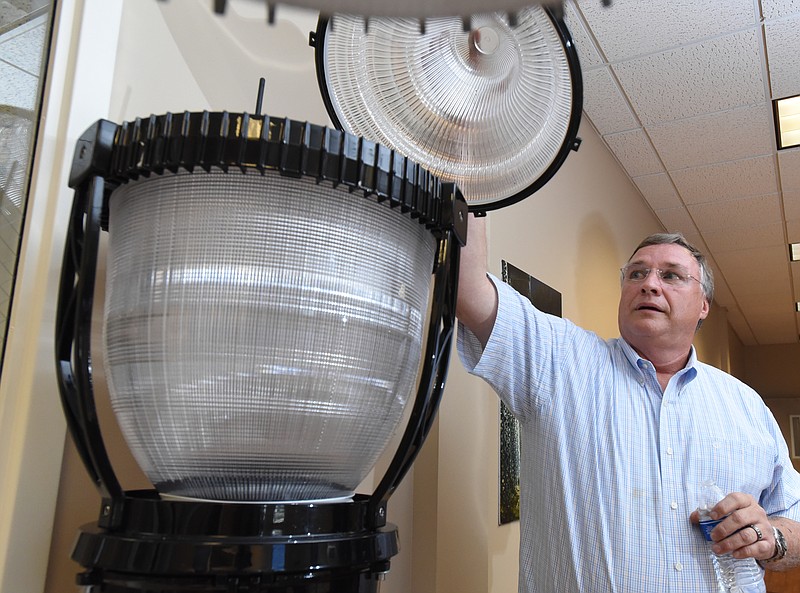Chattanooga's failed effort to build a more energy-efficient and controllable street light system is being highlighted by a conservative watchdog group as one of the biggest government waste projects in Tennessee.
In its 15th annual "Tennessee Pork Report" on government waste, the Beacon Center in Nashville blasted the city of Chattanooga for paying more than $6 million for street lights that were given back to their developer in a dispute over how well the lights worked. The conservative think tank cited a city audit that chided officials for giving back the street lights to Global Green Lighting prior to the approval of the Chattanooga City Council.
"In an interesting "whodunit" in Chattanooga this year, city auditors discovered that, well, city officials might need to keep closer tabs on the gadgets that they're spending millions of taxpayer dollars to have," Beacon said in its 16-page report. "Chattanooga spending needs a Red Light."
City auditor Stan Sewell reported in July that the city had allowed Global Green Lighting CEO Don Lepard to retrieve many of the LED and controllable street lights the city had purchased from Lepard under former Mayor Ron Littlefield. Those lights were removed under current Mayor Andy Berke in 2014 due to technical failures, although Lepard blamed the failures on EPB installers and questioned why the city wouldn't work with him to help grow his Chattanooga business. Ultimately, the street lights were removed, or not installed, and were placed in city storage for years.
Lepard sued the city for breaking his contract. To settle the dispute, city officials, including then city attorney Wade Hinton, allowed Lepard to reclaim the lights in 2018.
But according to Sewell, the agreement to allow Lepard to recover the lights wasn't properly approved by the City Council when he conducted his audit. Subsequently, the council in October ratified the 2018 deal to give the lights back to Lepard.
"The Washington Post says "Democracy dies in darkness,'" Beacon's Mark Cunningham said. "So too does our trust in our elected officials and bureaucrats."
Lepard had urged the city to ask for an independent review of the contract and the performance of Global Green Lighting and Lepard's attorney, Buddy Presley, urged the city this summer to call for a review by the state Comptroller.
Berke insisted that the lights did not work as promised so he suspended the original plans by former Mayor Littlefield to replace all of Chattanooga's incandescent lights with the new Global Green Lighting devices. Littlefield said his $18 million plan to replace all lights would bring more energy efficiency to city lights, allow the devices to display more illumination when needed for crime control or special events and helped propel a local business.
The Chattanooga lighting contract was among a dozen government projects across Tennessee that Beacon highlighted Tuesday in its "Twelve Days of Pork" that the group said involves "millions of dollars in government waste, fraud and abuse."
Beacon named Nashville's 34% property tax increase as its "pork of the year winner," claiming Tennessee's capital city should have trimmed expenses rather than boost taxes during a pandemic.
Beacon also blasted the $2 million of state aid given to help with the expansion of the Franklin, Tennessee headquarters of finance guru Dave Ramsey's business, Ramsey Solutions.
"It's wrong for taxpayers to fork over another $2 million - possibly more - for Ramsey's company . . . on top of the $3.5 million state and local governments gave the company or a previous expansion," Beacon said.
Contact Dave Flessner at dflessner@timesfreepress.com or at 757-6340
